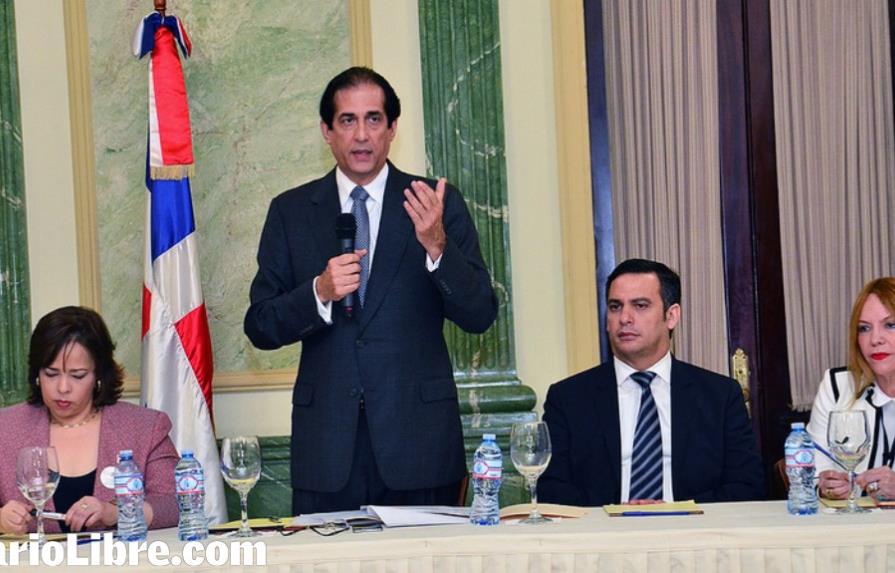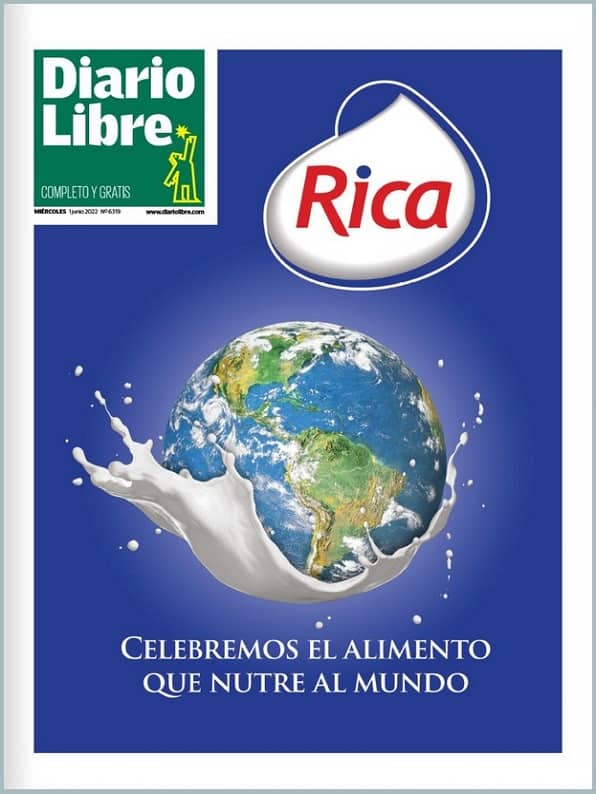Civil society has great influence in the government of President Danilo Medina
Some PLD leaders feel that there is an excess of those groups occupying positions

SANTO DOMINGO. The former secretary of the Presidency, Danilo Medina is said to have brought about the greatest part of the opening of the administrations of the Dominican Liberation Party to the civil society and the incorporation of personalities and sectors into governmental policy and work when the organization began to be a power option an already installed in the Presidential Palace.
Medina, a worker and knowledgeable of the PLD rank and files since his entry into the PLD, is considered by comrades as the "assembler" of the of the administrations of the party founded by professor Juan Bosch.
It is during his tenures as Secretary of the Presidency that would see the beginning of the incorporation of social segments into the PLD, even of critics of the ideologies that gave birth to the current official party.
Since then, inside the party, there have been criticisms by founders for the opening to personalities of the PLD administrations, sometimes arguing that they are giving opportunism to people who do not like the PLD.
In the current administration, the Minister of the Presidency, Gustavo Montalvo, is tied to the recruiting and incorporation of personalities of the civil society into the government. This official, one of the closest collaborators of President Danilo Medina together with José Ramon Peralta, the Administrative Minister, have under their responsibility the principle projects and official policies of the current administration.
The Minister of the Presidency, an old member of the PLD, but with experience in the private sector, is the person responsible for important initiatives such as the 911 system. He headed the negotiation commissions with Haiti, before Chancellor Andres Navarro took over; he chaired the commission that created the citizen oversight committees (veedurías) of the official institutions for transparency in their executions and to reduce corruption.
Those in government
Some of the members of the civil society that have functions in the administration are Ramon Tejada Holguin, the director of the DIAPE; businessmen Ignacio Mendez, Deputy Minister of Industry and Commerce, in charge of the Promotion of the Small and Medium Business and José Miguel Gonzalez Cuadra, the executive director of the Commission for the Re-creation of La Barquita.
Javier Cabreja, the former executive vice president of Citizen Participation and owner of the company "Democracy and Public Policies," offers periodical advice to the Directorate General of Public Contracts in the area of transparency, public policies and citizen participation.
Also, Luis Henry Molina, the current Deputy Minister of the Presidency, and Isidro Santana, the former director of Citizen Participation and now a member of the Council of Government Advisors, among others are from the private sector.
Ramon Tejada Holguin, a sociologist, political analyst and director of Information Analysis and Strategic Programming of the government (DIAPE), says that since its beginning the PLD suggested the stimulation of the level of acceptance and participation of citizens in politics. He indicated that there are sectors within the PLD that have had an authoritarian vision or relationship with the citizens, persons who have had and were in a government position that gave them plenty of privileges and now they feel resentful upon being displaced.
"Those that oppose this are people who want a government, where is no transparency, where there is no vision of policies that respond to the real necessities of the people, they are persons who want just to govern according to their own vision and interests," he said.
He stated that in this administration they have given a greater level of participation to the civil society of the Dominican Republic and he gave as an example the citizen oversight committees, "but you should note that they are not thinking as a governmental structure in which these people are contracted as employees. The citizen oversight committees are persons elected from diverse areas and interests, reporters, clerics, businessmen, popular groups, non-governmental organizations.
Another vision
Marcos Villaman, the rector of the Global Institute of High Studies in Social Sciences of the Global Democracy and Development Foundation (Funglode) recalls that in the 80s civil society exploded with popular urban elements such as Copadeba and neighborhood boards. This was a lost decade for the economy, but it was a winner for politics, because there was an effort by the democratic generation and the rise of the NGOs for the service of those movements such as Alternate City, the CDEEE, and the CEPAE.
He said that it is in 1991 when other organizations of the civil society different from those mentioned began to appear, such as Citizen Participation, which came from efforts to help the democracy of the country by its presence in the electoral aspects, seeking electoral fairness.
"I say that one of the things that has to be recognized in Citizen Participation is their contribution to make the elections go from not credible, arguable, to become an event such as today that is acceptable, and politically legitimate," he argued.
He continued by saying that this administration has a greater presence of the civil society, something that is very normal because they have created a democratic road and they understand it better. They understand that there are no evil spaces or godly spaces; what they have are human spaces in which they have to exercise their duty for the good of society.
Given the criticisms by some PLD leaders that the current administration has an excess of people from the civil society, Villaman said: "I can't see these excesses; I believe there is a presence of persons who come from civil society, of technicians who are highly qualified and will provide a service to the country, to the Dominican State and to the Government, a service that not everyone can provide because they don't have the training for this. I believe that we have to accept that there is a lack of certain levels of professionals for some types of services in the state.
Medina, a worker and knowledgeable of the PLD rank and files since his entry into the PLD, is considered by comrades as the "assembler" of the of the administrations of the party founded by professor Juan Bosch.
It is during his tenures as Secretary of the Presidency that would see the beginning of the incorporation of social segments into the PLD, even of critics of the ideologies that gave birth to the current official party.
Since then, inside the party, there have been criticisms by founders for the opening to personalities of the PLD administrations, sometimes arguing that they are giving opportunism to people who do not like the PLD.
In the current administration, the Minister of the Presidency, Gustavo Montalvo, is tied to the recruiting and incorporation of personalities of the civil society into the government. This official, one of the closest collaborators of President Danilo Medina together with José Ramon Peralta, the Administrative Minister, have under their responsibility the principle projects and official policies of the current administration.
The Minister of the Presidency, an old member of the PLD, but with experience in the private sector, is the person responsible for important initiatives such as the 911 system. He headed the negotiation commissions with Haiti, before Chancellor Andres Navarro took over; he chaired the commission that created the citizen oversight committees (veedurías) of the official institutions for transparency in their executions and to reduce corruption.
Those in government
Some of the members of the civil society that have functions in the administration are Ramon Tejada Holguin, the director of the DIAPE; businessmen Ignacio Mendez, Deputy Minister of Industry and Commerce, in charge of the Promotion of the Small and Medium Business and José Miguel Gonzalez Cuadra, the executive director of the Commission for the Re-creation of La Barquita.
Javier Cabreja, the former executive vice president of Citizen Participation and owner of the company "Democracy and Public Policies," offers periodical advice to the Directorate General of Public Contracts in the area of transparency, public policies and citizen participation.
Also, Luis Henry Molina, the current Deputy Minister of the Presidency, and Isidro Santana, the former director of Citizen Participation and now a member of the Council of Government Advisors, among others are from the private sector.
Ramon Tejada Holguin, a sociologist, political analyst and director of Information Analysis and Strategic Programming of the government (DIAPE), says that since its beginning the PLD suggested the stimulation of the level of acceptance and participation of citizens in politics. He indicated that there are sectors within the PLD that have had an authoritarian vision or relationship with the citizens, persons who have had and were in a government position that gave them plenty of privileges and now they feel resentful upon being displaced.
"Those that oppose this are people who want a government, where is no transparency, where there is no vision of policies that respond to the real necessities of the people, they are persons who want just to govern according to their own vision and interests," he said.
He stated that in this administration they have given a greater level of participation to the civil society of the Dominican Republic and he gave as an example the citizen oversight committees, "but you should note that they are not thinking as a governmental structure in which these people are contracted as employees. The citizen oversight committees are persons elected from diverse areas and interests, reporters, clerics, businessmen, popular groups, non-governmental organizations.
Another vision
Marcos Villaman, the rector of the Global Institute of High Studies in Social Sciences of the Global Democracy and Development Foundation (Funglode) recalls that in the 80s civil society exploded with popular urban elements such as Copadeba and neighborhood boards. This was a lost decade for the economy, but it was a winner for politics, because there was an effort by the democratic generation and the rise of the NGOs for the service of those movements such as Alternate City, the CDEEE, and the CEPAE.
He said that it is in 1991 when other organizations of the civil society different from those mentioned began to appear, such as Citizen Participation, which came from efforts to help the democracy of the country by its presence in the electoral aspects, seeking electoral fairness.
"I say that one of the things that has to be recognized in Citizen Participation is their contribution to make the elections go from not credible, arguable, to become an event such as today that is acceptable, and politically legitimate," he argued.
He continued by saying that this administration has a greater presence of the civil society, something that is very normal because they have created a democratic road and they understand it better. They understand that there are no evil spaces or godly spaces; what they have are human spaces in which they have to exercise their duty for the good of society.
Given the criticisms by some PLD leaders that the current administration has an excess of people from the civil society, Villaman said: "I can't see these excesses; I believe there is a presence of persons who come from civil society, of technicians who are highly qualified and will provide a service to the country, to the Dominican State and to the Government, a service that not everyone can provide because they don't have the training for this. I believe that we have to accept that there is a lack of certain levels of professionals for some types of services in the state.


 Adalberto de la Rosa
Adalberto de la Rosa
 Adalberto de la Rosa
Adalberto de la Rosa